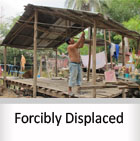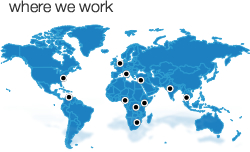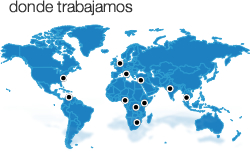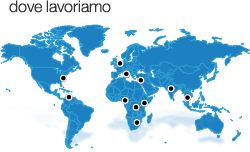28 March 2012
| Song Kosal and Tun Channareth are good friends of Prince Mired and they have campaigned in Jordan,too. |
Geneva, 27 March 2012: The ICBL welcomes Jordan's announcement that all its known mined areas have now been cleared. Jordan's National Committee for Demining and Rehabilitation (NCDR), under the leadership of its Director Prince Mired Raad Zeid Al-Hussein, declared on 21 March that all known minefields in the country are now safe after nearly 20 years of demining.
"We want to congratulate Jordan for this achievement, and especially Prince Mired for his remarkable leadership and tireless efforts over the years. Jordan has been a true champion of the Mine Ban Treaty and its national mine action programme is exemplary and one that many other countries - not least Jordan's neighbours in the region - should draw good practice from," said Kasia Derlicka, ICBL Director.
Earlier this month the ICBL and Human Rights Watch led the world in condemning Syria after eye witness reports showed the Syrian Army had been laying new minefields along the country's borders with Lebanon and Turkey.
"This good news from Jordan is especially important given the severity of the mine problem in the region, including the recent new mine use by its neighbour Syria." Derlicka added.
Many countries in the Middle East region are affected by mines, including: Egypt, Iran, Iraq, Israel, Syria, and Yemen. However, only Jordan, Iraq, and Yemen have joined the Mine Ban Treaty and have been working to remove this threat from their land.
Speaking to the ICBL, Prince Mired said: "I am delighted that we have been able to meet our deadline to clear all known minefields on our territory. We have been demining since 1993 and it has been a long and arduous challenge. However, we were able to overcome all the difficulties we faced with good planning, perseverance and hard work. I am very grateful to all those who supported us along the way, especially all the staff of NCDR, our donors and mine clearance partners Norwegian People's Aid and the Jordanian Armed Forces, as well as survivors and civil society. We have kept to our promise of safeguarding life & promoting development, and for that I am very happy."
The number of people killed or injured by landmines and other explosive remnants of war (ERW) in Jordan has been dramatically decreasing for several years. In 2010 two people were reported killed and one injured in landmine or other ERW blasts. There are more than 750 survivors of landmines or ERW living with their injuries in Jordan today.
In June 2010, the NCDR's National Plan declared their aim to complete clearance of all known mines, including 65,000 mines from the northern border by May 2012, as mandated by their Mine Ban Treaty obligations. Representatives from Jordan will be expected to report in detail about this latest development at the treaty intersessional meetings being held in Geneva that month. At this meeting, ICBL campaigners will join members of our sister campaign the Cluster Munition Coalition to urge Jordan to now take steps to eradicate cluster bombs too by acceding to the global ban. To see more details on mine clearance and casualties in Jordan please visit the Landmine Monitor Country Profile.
This story originally ran on ICBL News Articale













